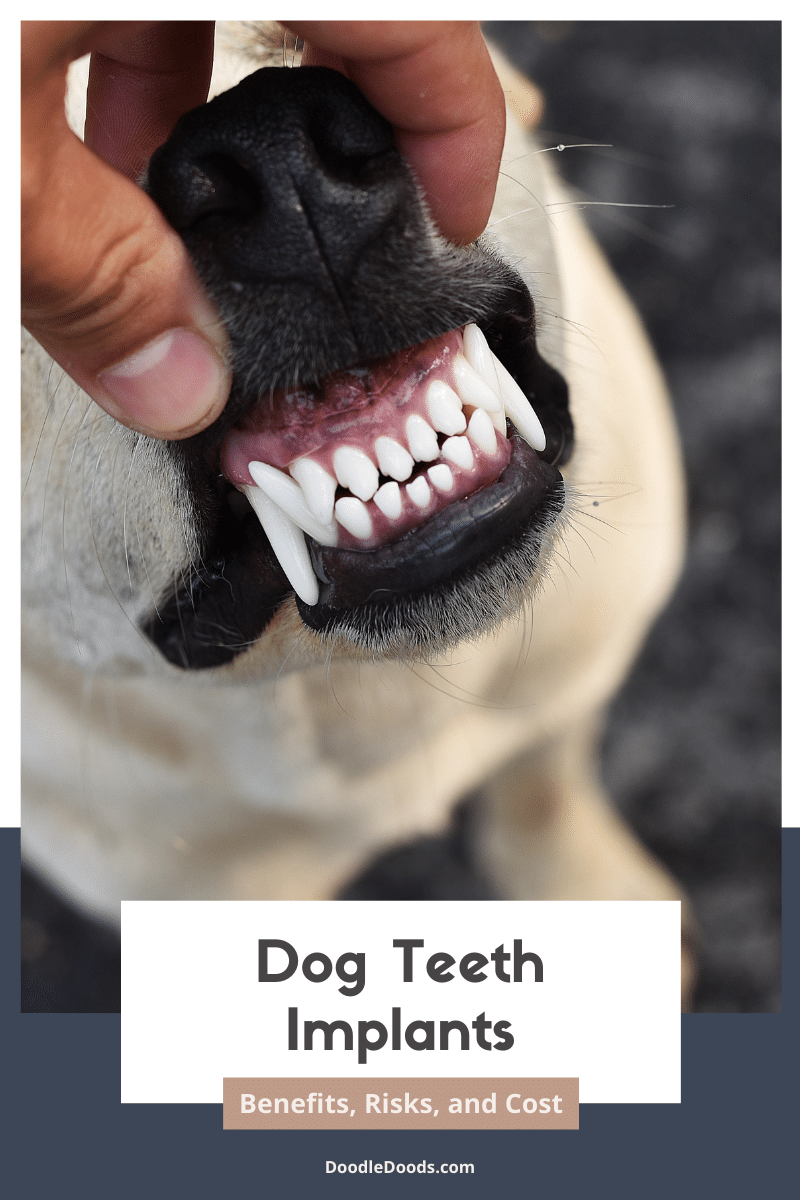Rehoming your pet is certainly not an easy decision, but sometimes it’s the best course of action for everyone involved. In this guide, we’re going to learn how does a dog feel when rehomed and discuss some of the best tactics on how to make this process as easy, smooth, and gentle as possible for both you and your best pal.
Table of Contents
- How Does A Dog Feel When Rehomed: Intro
- How Does A Dog Feel When Rehomed?
- Do Dogs Feel Abandoned When Rehomed?
- Do Dogs Miss Their Previous Owners When Rehomed?
- How Long Does It Take For A Dog To Adjust To A New Owner?
- Is The 3-3-3 Rule Applicable When Rehoming A Dog?
- How Can I Help My Dog Adjust To A New Home?
- The Do’s And Don’ts While Rehoming Your Dog
- How Does A Dog Feel When Rehomed: FAQs
How Does A Dog Feel When Rehomed: Intro
If you’ve come to the crossroads where your only option is to rehome your dog, your head is likely spinning with all the worries and questions. Or, maybe you have to take in a dog of a loved one who cannot take care of their pup anymore. How does a dog feel when rehomed? Do dogs feel abandoned when rehomed? Is rehoming a dog bad? How can you rehome your dog in the most humane way possible? All of these questions tend to arise when you or someone you know has to rehome a dog.
There are many possible reasons why a loving pet parent has to find a new home for their best pal. Whether it’s due to financial reasons, an illness or death in the family, or changes in the family dynamics, this difficult decision is more often than not only made in the most extreme situations when there seems to be no other way.
When rehoming a dog, it isn’t just about dropping off your beloved pup to another home and then calling it a day. A dog has to get used to a completely new home environment, away from their most loved people, and adjusting to a new family without having their previous owner there with them. Regardless of the situation, rehoming a dog is never easy, and it does require quite a bit of research to make it work for everyone without excessive stress and trauma.
In this article, we’re going to take an in-depth look into this topic and try to understand how our canine pals feel when they have to be rehomed. We’ll also discuss some of the key things you should keep in mind when you have to rehome your dog.
How Does A Dog Feel When Rehomed?
You’re likely wondering – how do dogs feel when you give them away? We’re not going to lie, rehoming a dog can be extremely traumatic for our canine pals. To be fair, it’s likely going to be traumatic for you, too. However, as humans we have the ability to process our emotions slightly differently by rationalizing and talking things through. On the other hand, dogs don’t have the same understanding of situations as we do. Therefore, rehoming a dog can be an extremely stressful experience for them.

This is especially true if your dog has formed a strong bond with their previous owner and they’ve been able to provide a happy and fulfilling life for their pup so far. Taking them away from everything they’ve known and loved so far is not going to be easy by no means.
Dogs tend to experience a wide range of emotions when they’re rehomed – from sadness and stress to shyness, anxiety, and severe depression. These emotions tend to come hand in hand with other behavioral struggles, such as loss of appetite or even becoming aggressive. All of these are natural emotions and us humans commonly feel those same feelings when we’re put in a completely new environment.
Do Dogs Feel Abandoned When Rehomed?
As we mentioned, it’s very usual that dogs feel a range of often negative emotions when they’re rehomed. Stress, anxiety, PTSD, depression are all very common signs that a dog is struggling with being rehomed. But how does rehoming affect a dog exactly?
These issues usually manifest in different behaviors, such as becoming increasingly anxious, pacing around, whining, and barking. A common thing is that dogs start looking for their previous owners, becoming even more anxious and stressed if they don’t see them for an extended period of time.
Dogs may also become extremely sad and lose their appetite. They may also lose interest in all other activities that they used to enjoy, such as playing fetch or going on walks outside. They may sleep for the majority of the time as well – it’s quite similar to depression in humans.
Moreover, it’s not uncommon for some dogs to even become aggressive, as they simply don’t understand what’s going on and why they’re not in their usual home with their previous owners. They may also become fearful and hide due to the confusion and sadness that they’re experiencing.
In addition to that, dogs may exhibit physical signs of depression, anxiety, and PTSD when rehomed. These include changes in bathroom habits, including diarrhea, vomiting, or constipation. They may also start to urinate inside the house, dig excessively, or destroy the furniture.
Furthermore, if the stress is too much for a pup to bear, they may start to tremble and shiver, even start shedding excessively. Dogs may also start to lick, scratch, and bite themselves due to all that stress. Excessive drooling is another common sign of stress when a dog is rehomed.
Do Dogs Miss Their Previous Owners When Rehomed?
Yes, most of the time dogs miss their previous owners when rehomed. That’s usually true in instances where they previously lived in a loving home and shared a strong bond with their owner or the whole family.
Understandably, getting used to their new home and family can take a lot of time. But with proper care and affection, they’ll likely form strong bonds with their new owners and gradually get over the sadness and confusion over time.
It’s important to note that it all depends on the individual dog and their unique situation. If a dog is on the younger side, the rehoming process might not be as stressful and traumatic for them. However, the older the dog and the longer they lived with their previous owner, the more difficult it will likely be. That’s not always the case though, but it’s something worth keeping in mind.
How Long Does It Take For A Dog To Adjust To A New Owner?
How long it takes for a dog to adjust to their new owner and home depends on a variety of factors. For starters, the younger your pup is, the easier it will be for them to adjust to their new owner and environment.
Let’s take Gotcha Day for example. If you adopt a puppy from a breeder, they’re about two or three months old at that point. Even though they haven’t lived a particularly long life yet, they’ll still likely need a few days or even weeks to adjust to their new home. They’re not with their littermates and mama anymore, and they live in a completely new environment with totally new people. Some whining and shyness are completely normal during this transition phase.
Of course, if a dog has lived in their home with their owners for a significantly longer period of time, the adjustment will most likely be more stressful and traumatic for them. They need time to start forming a bond with their new owners and get used to being in a new home. Oftentimes, those symptoms of stress and anxiety are going to be more pronounced and will take more time to subside.
Additionally, if a dog is rehomed in their senior years, it can only add to the confusion and stress they’re experiencing. Elderly dogs are already at risk of cognitive decline and behavioral changes, so any significant changes in their family dynamics and home environment can be all the more traumatic for them.
All in all, if a pup had a loving home with wonderful owners previously, they’ll likely miss them for the rest of their lives. However, if they’re given lots of love, care, and attention in their new home, they’ll likely form strong bonds with their new owners, too. This in turn can help them adjust to their new home and owners more quickly, helping them deal with all that stress, anxiety, and sadness in a much better way.
At the end of the day, there’s no exact answer to this question, as all dogs are unique, and the situations they were brought up in as well. The goal is to make the transition to their new home and owners as smooth and gentle as possible.
Is The 3-3-3 Rule Applicable When Rehoming A Dog?
The 3-3-3 rule comprises the first three days, three weeks, and three months after bringing home a pup. These are the stages that can help a dog and their new owner to adjust to their new home and family. Although the 3-3-3 rule is often mentioned when talking about rescue dogs, it can be a helpful guideline when rehoming a dog as well.
So, as we mentioned, the 3-3-3 rule covers the key milestones – three days, three weeks, and three months. The first three days are usually the hardest for rescue dogs, as they likely feel stressed and anxious, fearful and shy. They may also lose their appetite and try to hide from their new owners.
After the first three weeks, however, a rescue dog will likely start to slowly settle into their new home, feeling more comfortable and getting used to the new environment with their new owners. They’ll already know what goes where and how to navigate in their new home, and starting to adjust to the new routine. They may also get a bit more comfortable with their surroundings and their new family.
And finally, the three month mark is usually when rescued or rehomed dogs are finally comfortable in their new home and around their new family. They’ll likely trust their new humans and form a bond with them.
Of course, not all dogs adjust by the 3-3-3 rule, as each dog requires an individual approach paired with lots of love, care, space, and cuddles. However, it’s very likely that a rehomed dog will feel more comfortable as the time goes on. For some pups it could take as little as three months, whereas other rehomed dogs may take even up to a year or longer to fully get comfortable in their new home.
The key thing here is to provide a rehomed dog plenty of space to adjust, but also making sure they feel secure and loved. You don’t want to put too much pressure on a rehomed pup just yet, but they should be able to feel that their new family wants to dote on them.
How Can I Help My Dog Adjust To A New Home?
Whether it’s you having to find your best pal a new home or you’re actually adopting a pup from another family, you must take it slow and give the pup time to adjust. If possible, we recommend that the dog who’s about to be rehomed has enough time to meet with its new family way before adoption. Think of regular play sessions, walkies, meet and greets, and all that kind of stuff with both their previous and future owners. Starting to form a bond already in advance can make a huge difference once it’s time for them to move homes.
Of course, it’s not always possible for the dog to meet their new owners beforehand – maybe their previous owner has died, which means that the rehoming is going to be quite prompt with no time to ease into this new life change.
Either way, it’s important to make the dog feel as comfortable as possible in their new home. If you’re bringing in a dog from their previous home, make sure you already have everything set up for them. You should set up a nice and cozy place for them to rest and relax in, preferably in a quiet area away from the hustle and bustle of the household. A nice and comfy crate can be super helpful for that. In addition to that, make sure you have all the food and water bowls, dog toys, and dog food already stocked up on.
Another helpful tip is to introduce the pup to their new home with a little tour around the house or apartment. This way, they can understand what goes where and which rooms are in their new home. What’s more, if you have other pets in the household, you should also calmly introduce them to each other, but don’t force them to spend time together if they’re not up for it.
Additionally, make sure you set a daily schedule and stick to it, day in and day out. Schedules are wonderful for our canine pals, as they help them feel more confident and secure, knowing what to expect each day at specific times. A helpful trick is to schedule your dog’s mealtimes, potty breaks, playtime, and bedtime. This way, everything else can easily fall into place as well.
And last, but not least, make sure you give your new, likely stressed out pup plenty of time to adjust. Be patient with them, even if they leave some accidents around the house initially. Don’t be too forceful with your affection, give them plenty of space, but also let them know that you’re here for them.
The Do’s And Don’ts While Rehoming Your Dog
Now that we’ve answered your question “how does a dog feel when rehomed?” and discussed some simple ways to make this process as easy and smooth as possible for everyone involved, let’s do a quick recap of the do’s and don’ts when rehoming a dog. Here they are:
Do:
- Carefully consider the home and family the dog is going to. Rehoming a dog is stressful and traumatic enough, so whether it’s you taking in someone’s dog or having to give your pup away, make sure that this new home is going to be their forever home.
- Try to schedule the rehoming to a morning time, when dogs tend to be calmer. In the evening, dogs tend to be more anxious, and you want to keep their stress levels to a minimum as much as possible in this situation.
- Set up a daily schedule for your new dog and stick to it. This enforces confidence and sense of security, and will help your new pup adjust to their new home and family more quickly.
- Be patient and considerate with your new dog. They’re likely feeling all sorts of negative emotions, stress, and anxiety from the transition. Accidents can happen around the house due to stress and anxiety, but a daily schedule can help them re-learn those crucial bathroom habits.
- Provide your new dog with plenty of physical and mental stimulation to keep them entertained and prevent boredom. This is essential for any dog, but if you’re taking in a rehomed dog, it’s especially important that they have a healthy outlet for all that pent up energy.
Don’t:
- Adopt a dog from another family if you haven’t carefully considered all aspects of owning a dog. Only take in the dog when you’re 100% sure you’ll be their forever home, not having to traumatize them with another rehoming in their lifetime.
- Scold or punish a dog that’s been rehomed, as they’re prone to accidents around the house and even aggression due to anxiety and stress. You have to be extremely calm, gentle, and patient with a dog that’s being rehomed from another family.
- Expect a rehomed dog to adjust to their new life with you immediately. This can take months, even years for them to feel comfortable in their new home.
How Does A Dog Feel When Rehomed: FAQs
Dogs often become stressed and anxious when they have to be rehomed. This is especially true for dogs that have spent extended periods of time in their previous home with their previous owners. It’s not uncommon for rehomed dogs to become shy and fearful in their new homes, pacing and whining, crying, and even losing their appetite. They may also start to pee and poop inside the house if they’re feeling very stressed out and anxious due to the rehoming.
Indeed, rehoming can be a very traumatic process for dogs. However, with proper care and affection you can minimize their stress and help them adjust to their new home and family more easily. The key is to make sure that the dog who’s being rehomed gets all the love, care, and attention they need to thrive and become confident again.
This depends on a variety of factors, such as what were the dog’s living conditions before rehoming and how long they were with their previous family. Needless to say, if a dog is being rehomed from horrible living conditions, they won’t miss their previous owners particularly long. But that’s not to say that they won’t have a difficult time adjusting to their new home and family, especially as they’ve been so traumatized in their previous home.
But if the dog had a wonderful home and shared a strong bond with their previous owner, it’s likely going to be more traumatic for them to part ways. They can even miss their previous owners for the rest of their lives, but if you can give them a loving home and form a strong bond with them yourself, it’s going to be that much easier for them to get over that painful adjustment period.
In terms of adoption, puppies are usually sent to their ‘forever homes’ around 8 weeks of age. However, when dogs are rehomed from one family to another, this usually happens between 5 months and 3 years of age.
If you’re ever in the position where you have to consider rehoming your dog, it’s likely due to very serious reasons and there’s no other way around it. What you can do on your end is to ensure that your dog goes to a carefully vetted and loving home that can provide your dog that forever home they need. We also recommend you introduce your dog to their new family and new home early on, setting up meet and greet sessions with plenty of time to bond, play, and cuddle. Naturally, if you have to rehome your dog, it’s also going to be very tough on you too, but you’ve also got to think about your own mental wellbeing. Be gentle with yourself and forgive yourself. Therapy can be a helpful way to process all those emotions and help you get through this.
How Does A Dog Feel When Rehomed: Final Thoughts
Adopting a dog is a huge responsibility, regardless if you adopt a puppy from a breeder, an adult dog from a shelter, or take in a pup from another family. We hope this article answered your question “how does a dog feel when rehomed?” so you can fully understand the implications of such a huge process. If you’re the one taking in a rehomed dog, then be sure to be gentle and patient with your new pooch so that they have an easier time adjusting to their new family. And if you’re the one who has to make that difficult decision having to give up your pup, be gentle on yourself and do everything you can to ensure that your dog is going to a loving forever home. Rehoming a dog is a difficult decision and a difficult process, but it can be made easier for everyone involved if you’re taking the right steps.
Learn How to Stop Shavedowns For Good & Keep Matting At Bay!

Discover the PROPER Doodle coat care routine that gets your pup to cooperate…helps you nip tangles in the bud…and gets groomers to do exactly what you want.
Plus, get $520 worth of Bonus Materials for FREE, including:- Doodle Parenthood Community and Support Group ($190 value)
- Custom Doodle Coat Care Plan Lifetime Access ($75 value)
- Easy to Use Doodle Grooming Tracker ($20 value)
- And MORE!











When is it ok for a dog to hear the voice of its original owner that had to rehomed it for medical reasons?
April 5, 2024 at 4:44 pm